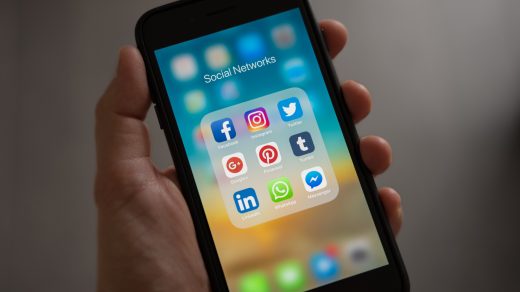
Just last weekend it happened again: After a long week of work, classes and getting through the annoying everyday tasks that life and bureaucracy hand us, I finally got to meet a friend and wind down over a few drinks. While they were getting a second round of beers, I took out my phone to mask the feeling of insecurity when sitting alone in a bar full of people and received a WhatsApp notification from my mom. She had messaged me earlier already, but I didn’t have the time or motivation to start a conversation and decided to get back to her the next day. Unfortunately, she always expects people to reply right away, so this second message was nothing but three questions marks ‘???’. I’m sure we all received a message like that before, and felt the pressure that comes with it.
What is really stressing me out about this kind of message, or WhatsApp in general, is this expectation of everyone constantly being online and available. This expectation sometimes goes as far as to make people feel anxious or mad at others because they fear they might be ignored since they didn’t get a response right away. And don’t get me wrong, I myself know that feeling just as well. Now, luckily my friends know at this point that it might take me a while to get back to them if it’s not urgent, and we usually keep the things we want to discuss for the next time we meet or talk about it on the phone.
However, this is where the next issue enters: the ‘pile’ of conversations that haven’t been opened yet; the ’19 messages from 9 conversations’ kind of situation. Lately I have had so much on my plate that I just didn’t feel like dealing with all of them, so they just multiply, up to the point where the messages in WhatsApp start resembling like the backlog of emails at work and every glance at the phone makes me feel guilty. This guilt can again partly be traced back to the expectation of constant availability in our contemporary digital society.
Of course, this phenomenon doesn’t only happen in the context of WhatsApp. The first messengers I remember using are ICQ and MSN, and I would be online a lot, chatting with my friends I had just seen in school that same day. These were later mostly replaced by Facebook and other platforms. The big difference of course being the fact that there was no way of accessing them without a computer and Internet connection, which naturally limited the amount of time we would spend chatting on those platforms.
With the emergence of smartphones and the access to mobile data for less and less money, that changed and we went from squeezing what we wanted to say into one text message because they were 9 cents each, to sending one question mark and pressing ‘send’ after not getting a response for one hour.
I know that this might all sound really negative, and I have to admit, I do complain a lot about this topic, but I would definitely not want to go back to the times when I had to call my friend’s landline to set a date or having my mom get mad at me for sending text messages to my friends while on vacation in a different country. All I long for is a rethinking of boundaries and expectations for the use of social media services like WhatsApp, which is surely easier said than done.
Sources
- https://www.whatsapp.com
- https://www.bbc.com/worklife/article/20210129-how-texting-makes-stress-worse




Recent Comments